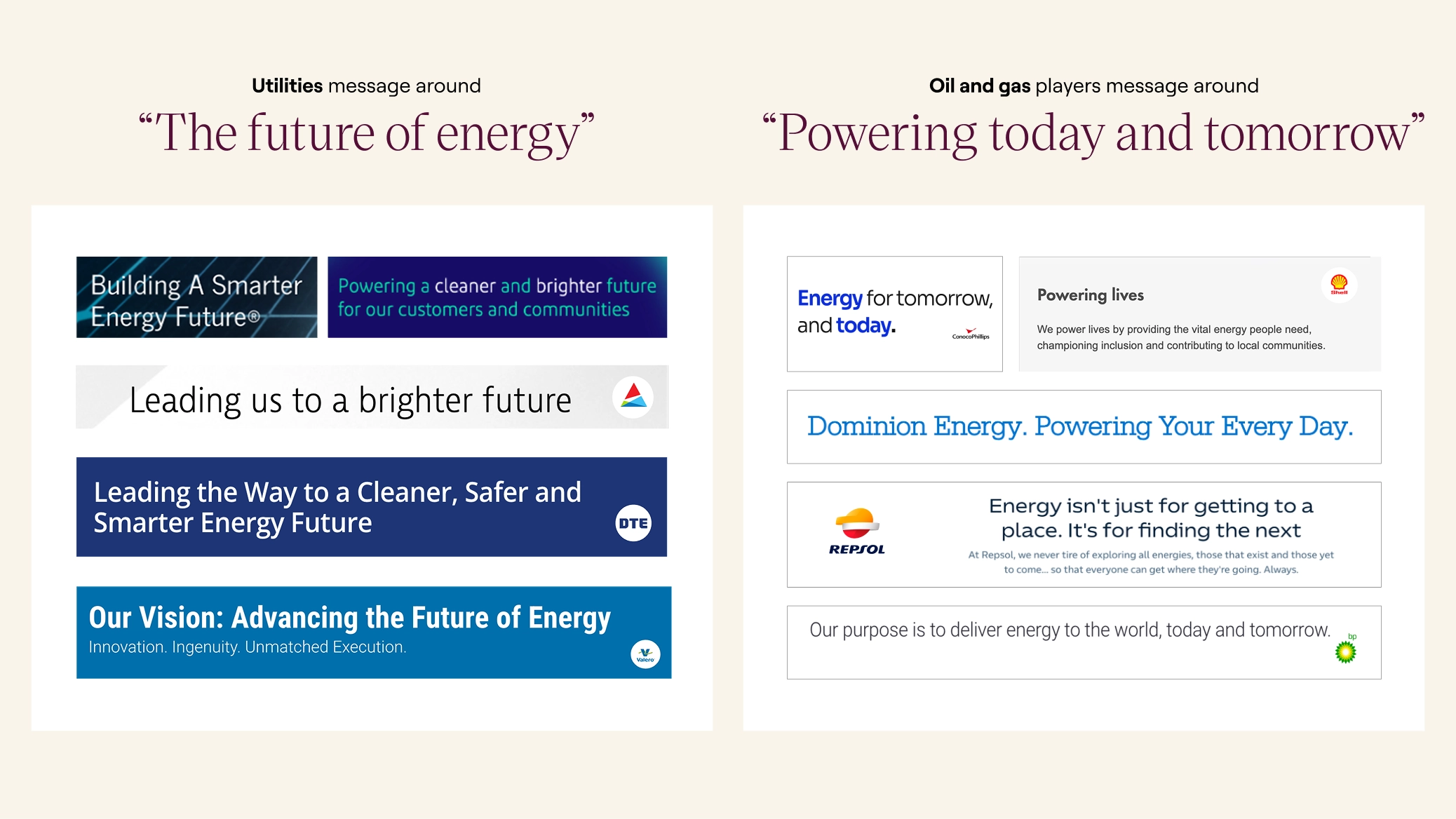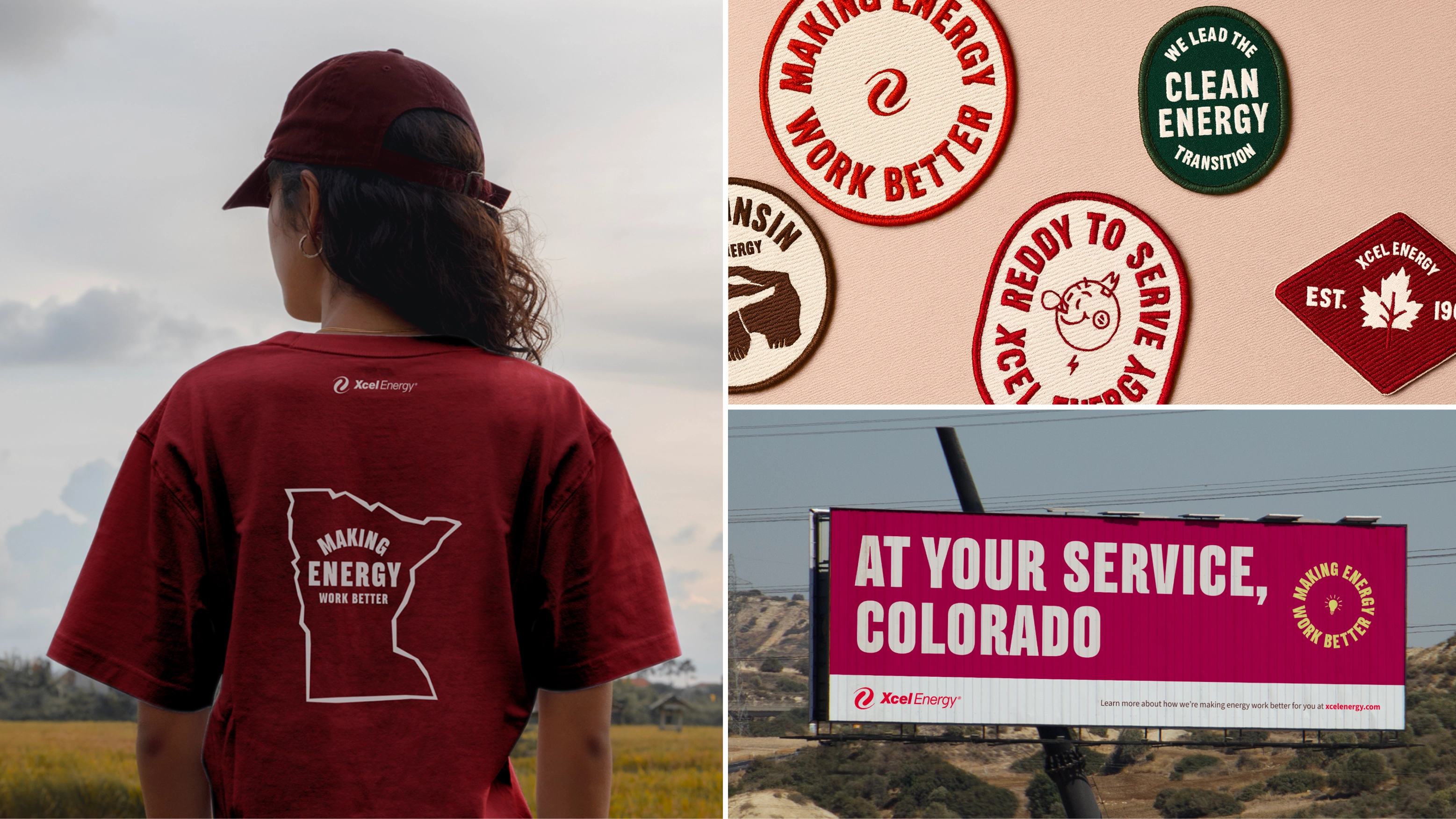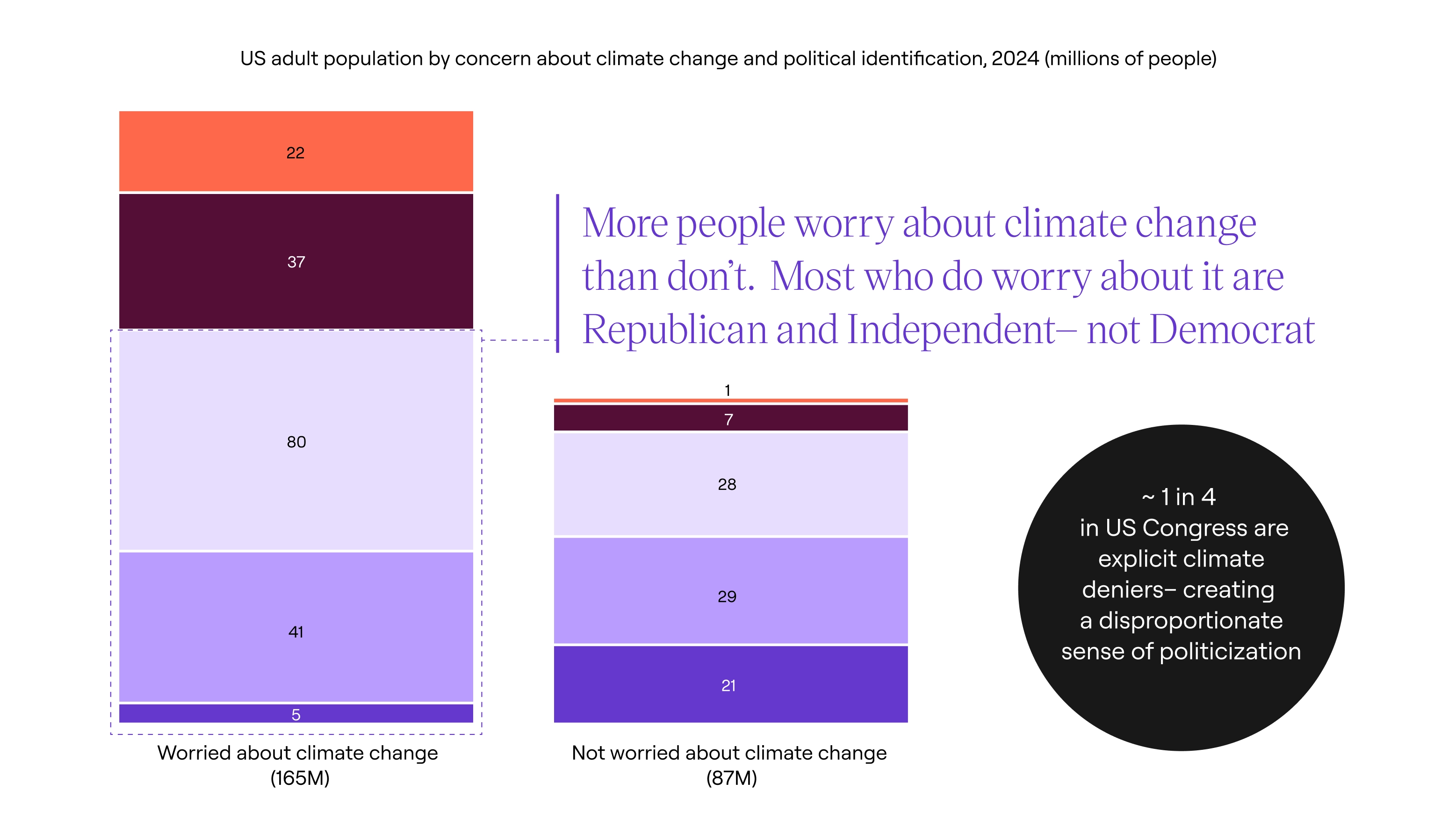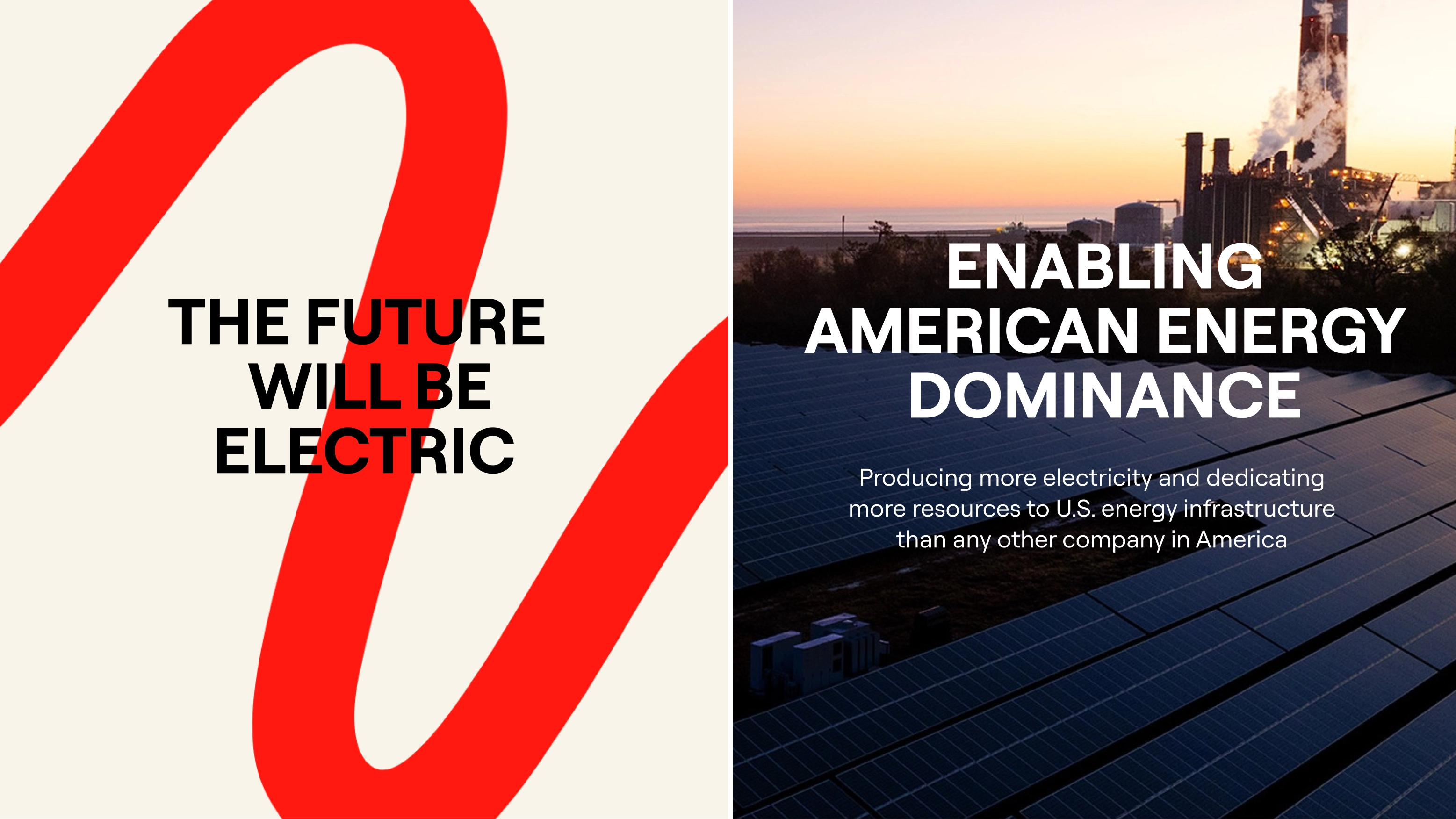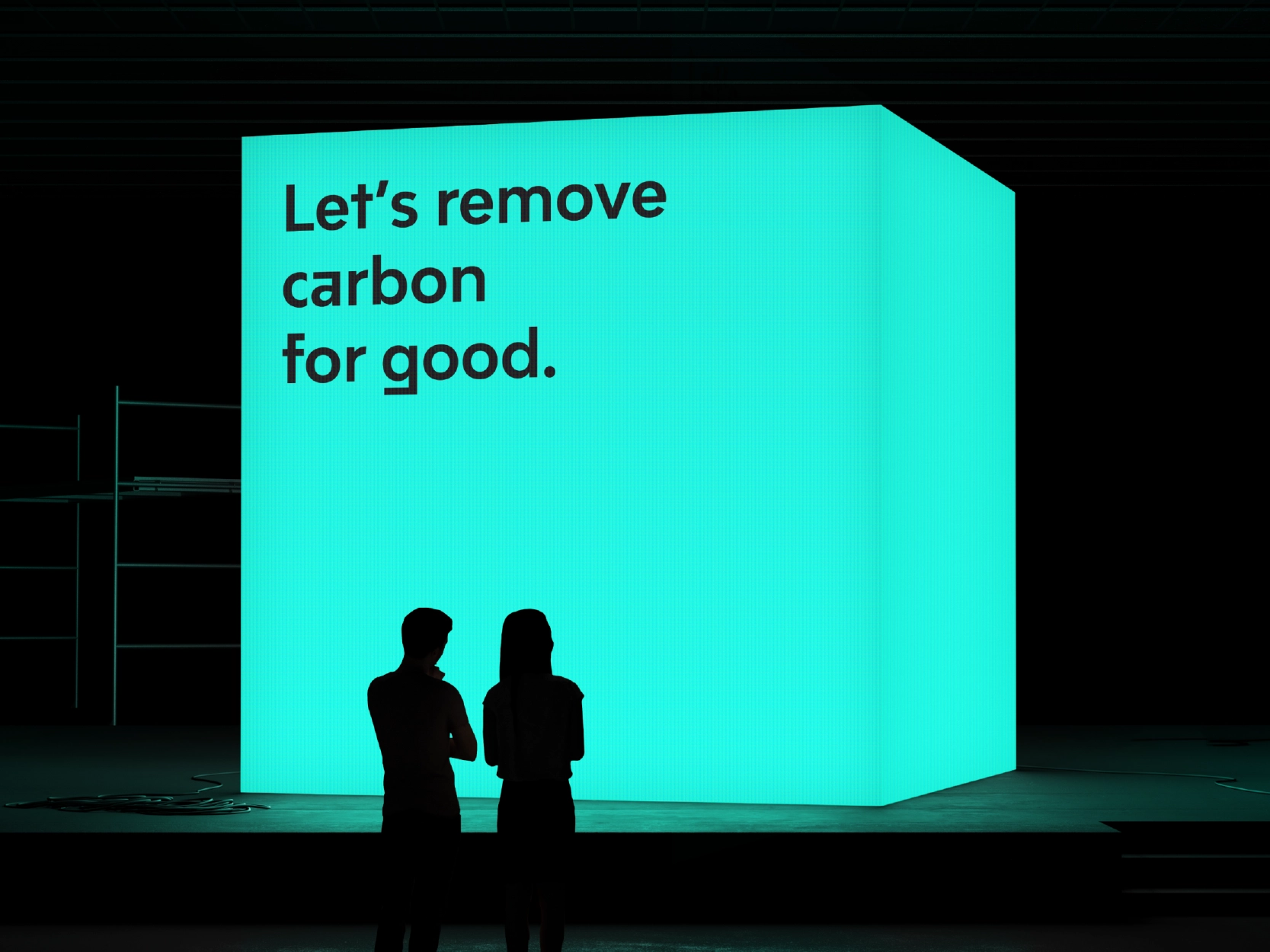Looking Vertically
Brand is an untapped asset for energy companies. Here’s why.
Energy costs are climbing, clean energy has become a political battleground, emissions are still on the rise, and environmental disasters are worsening. At the same time, energy demand is soaring, predicted to increase by 40% in the next 10 years. Driven by AI, electrification, and other energy-intensive technologies, society’s new needs will not be easy to meet. Aging infrastructure, high capital costs, and long project timelines make rapid expansion a challenge.
In this high-stakes landscape, brand matters more than ever. It’s not just about a stance on energy—it’s about telling a credible, compelling story that builds trust and aligns your vision with tangible impact. Unfortunately, many companies are backing away, opting for “play it safe” brands that mean nothing and communicate even less. But at this moment, playing it safe might be the bigger risk. Below, we explore the energy landscape in more depth and provide four opportunities for how energy companies can transcend today’s risks while building brands that foster connection and enable progress.
Make no mistake, the risks are real. It’s a more politicized landscape where energy itself is a lightning rod. Companies worry about polarizing audiences and getting lumped in with hot-button social issues. Add to that, uncertain regulatory support for large capital investments and overall increasing costs due to inflation and the risk of trade wars, it’s no surprise that companies are treading lightly.
To reduce risks, brands are reverting to safe territory with both messaging and expression. A quick scan of top energy companies reveals a “sea of sameness,” with brands consolidating around relatively innocuous (and also rather empty) identities.
This “play it safe” approach isn’t just bland, it limits energy companies’ ability to achieve their strategic goals. Only 31% of Americans have a positive perception of utilities, and even fewer (27%) have a positive perception of the oil and gas industry. About 80% of UK MPs have “little or no trust” in energy companies to play an effective role in the energy market. Less than 20% of Gen Z find the idea of a career in oil and gas appealing.
In this complicated context, meaningful engagement is especially important. Brand could build momentum for capital projects with investors, regulators, and landowners. Brand could build public support for infrastructure upgrades, rate changes, and innovation. Brand could generate goodwill even as weather becomes more extreme and supply becomes more unpredictable. Brand could engage new audiences and brand could sustain and rebuild employee connections. But today, brand is too often an untapped asset.
There’s a myth that since people need energy, they care about it. In reality, most people only think about energy when something goes wrong. To build enduring relationships, you need to go beyond energy and highlight how energy impacts customers’ lives and what matters most to them.
Thankfully, there are countless avenues to connection: elevating your commitment to the communities your power, humanizing the impact of energy, or highlighting the transformative potential in medicine, mobility, and beyond. Xcel Energy did this by going local, building a customer-first energy brand rooted in a commitment to delivering excellent customer support.
This opportunity extends to the customer experience, as well. Too often, energy providers confine the customer experience to tracking usage hours or providing billing updates and entirely miss unique opportunities to expand their role far beyond the transactional.
Energy touches every corner of modern life. Octopus Energy leveraged its customer trust and leading technology platform Kraken to address a range of interconnected sustainability needs like heating, EVs, and generation, showing up in the moments that matter and extending the experience beyond functional energy.
In short, winning brands integrate into the moments that matter and give customers tangible reasons to care that go above and beyond the on/off switch of energy.
Seven out of the ten top oil and gas companies include sustainability as a core element of their brand positioning, yet only 1% of clean energy investment comes from oil and gas. The energy transition is essential, but if it isn’t core to your business, it’s probably best not to position around it. Forcing it can feel inauthentic, leading to empty promises and accusations of greenwashing.
"Nation-washing," too, is increasingly a concern. As geopolitical tensions rise and protectionist policies emerge, it can seem politically advantageous to push your brand into nationalism. But there are a few key challenges. First, a national focus is not always relevant to customers, who often prefer more concrete benefits. Second, it may not help differentiate in a sea of companies claiming national leadership. And worst of all, for many multi-national players in the energy industry, it could lack credibility and leave you susceptible to claims of nation-washing.
Skip the green-washing and the nation-washing. Own your strengths, dial up your authentic purpose, highlight the qualities or innovations that make your brand meaningfully better—and build a compelling narrative around that. Not every company is leading the transition and not every company is leading the nation. Customers respect honesty and focus.
For those that do have the energy transition at the core of their business strategy, there are a few faulty assumptions that might be holding back broader connection.
The first myth is that talking about the transition is inherently political, and only liberals and progressives care about it. In reality, the majority of people care. Three-fourths of Americans think “companies have a responsibility to limit their impact on the climate.” This attitude isn't politically polarized. Recent research shows that there are more ‘climate worried’ people who self identify on the right than the left. In the U.S., there are more Independents and Republicans who care about the climate than there are Democrats. Talking about it does not need to link to political, moral, or social narratives.
Furthermore, talking transition doesn’t have to be “green.” The benefits of fighting climate change can feel intangible, distant, and impersonal. For some key stakeholders, non-climate reasons to drive the transition can be more compelling. Nexans reframed the transition as a long-term growth opportunity, and NextEra positioned their renewables as part of a stable strategy to “enable American energy dominance” (a nation-first focus, but in this instance, one that’s credible due to their scale as America's largest utility and one of the world's largest developers of renewable energy).
In short, energy companies can talk transition in a way that engages everyone, but it requires a depolarized, impact-driven narrative.
Customers aren’t energy experts. When talking transition, it’s important to respect customers’ understanding and interest level. While industry insiders interpret “transition” as any form of zero-emission energy, what comes to customers’ mind is solar and wind.
Research shows that 46% of customers believe nuclear energy emits more carbon dioxide than wind or solar power. To be clear, nuclear is clean energy, but customer views are driven more by what feels “natural” than actual emissions. As a result, nuclear (as well as biomass and carbon capture) often get unfairly labeled as “dirty” despite their role in reducing carbon.
All that to say, if your transition involves zero-emission energy sources beyond wind and solar, prepare for an uphill communications battle and factor in some education. Consider framing them in the context of better understood benefits like driving growth and providing abundant, affordable, reliable, and diverse energy.
It’s an incredibly challenging time for energy companies, and new risks have led many brands to retreat into a sea of same. The reality is, overcoming today’s risks requires a breakthrough brand: a brand that’s bigger than energy, positioned around your authentic purpose, and one that transcends politics by emphasizing benefits with real-world stakeholder impact. Today, brand is an untapped asset. Tomorrow, it could pave the path to progress.
Download the full report
Thank you!
If the download does not start automatically, please click here







